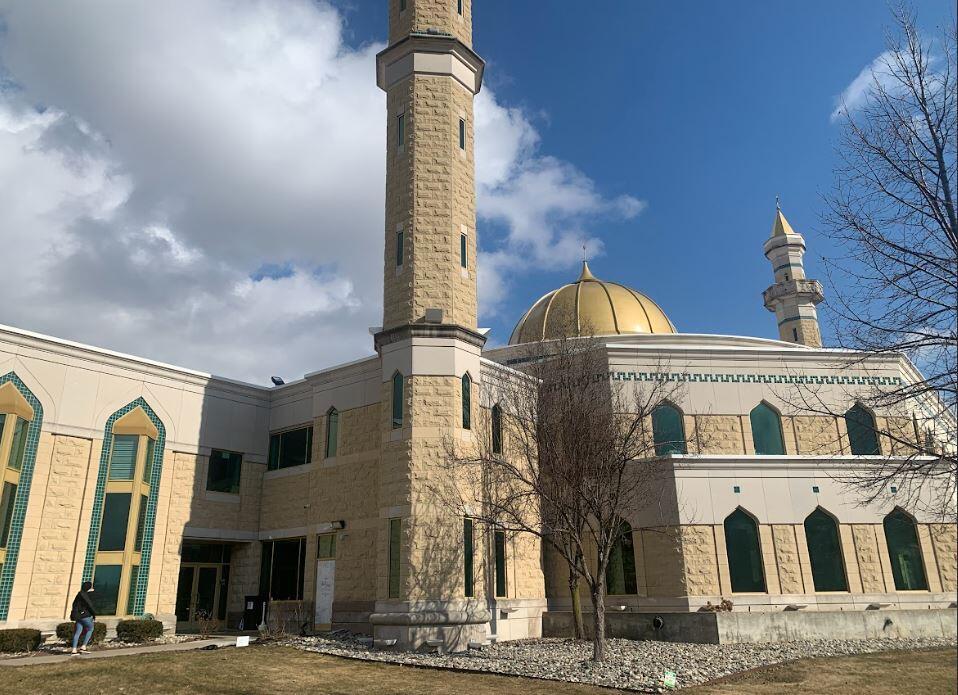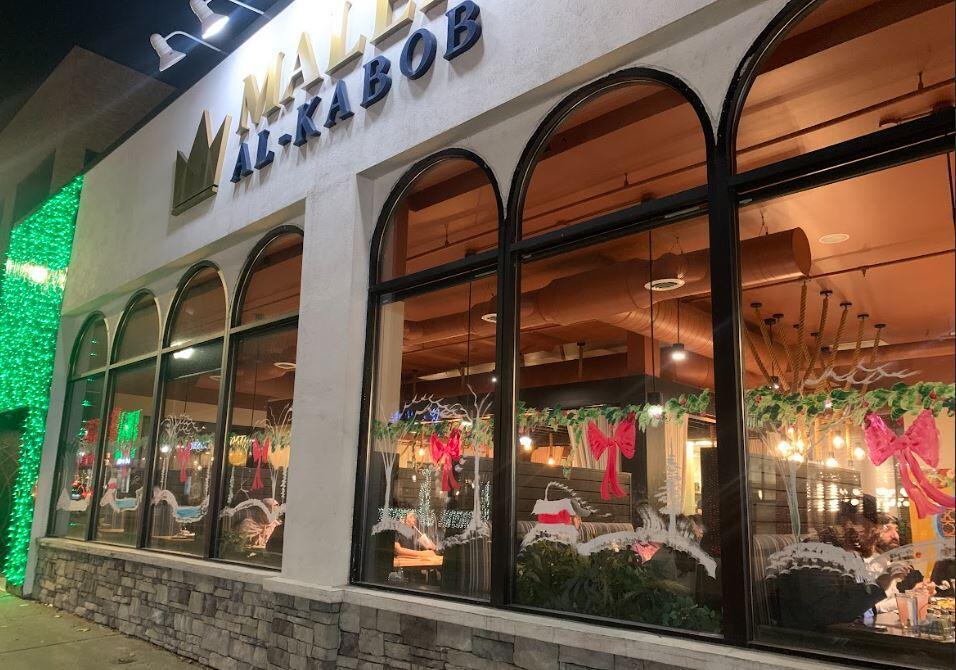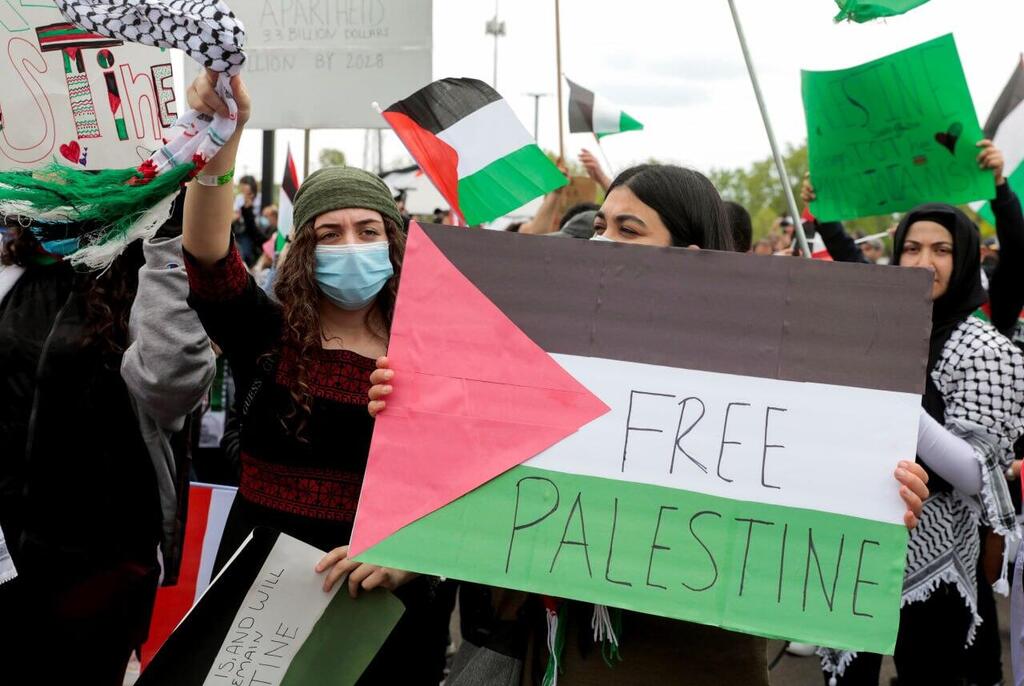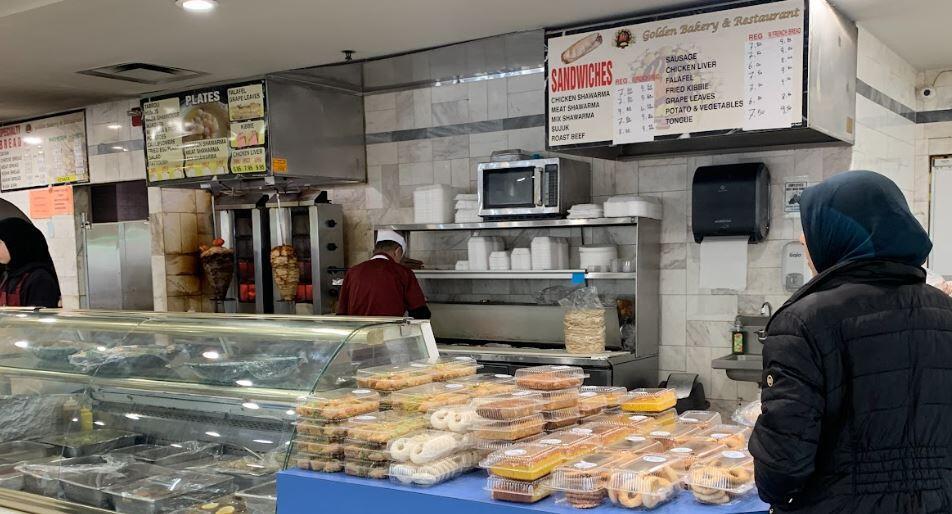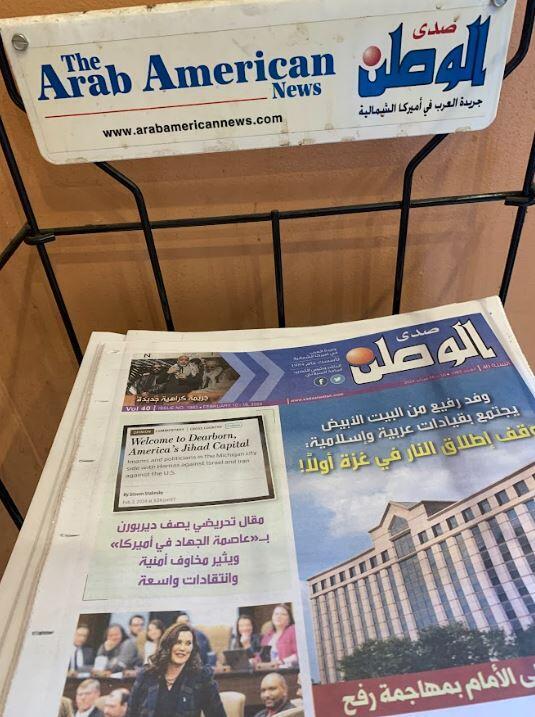Getting your Trinity Audio player ready...
Mistake 1 - Why didn't I rent a Ford?
Henry Ford's disdain for pedestrians went beyond just being antisemitic. This sentiment is reflected in his hometown of Dearborn, Michigan, which was intentionally designed to obstruct and deter those who attempted to navigate it in a primitive manner. Sidewalks are haphazardly interrupted, public transportation is non-existent, and shops and services are isolated along the main road. The entire infrastructure seems to cater to and glorify the use of cars, functioning on a drive-in basis, from banks to coffee shops.
Read more:
This design significantly impacts the way of life in the area. While there are more extreme examples of Suburbia in the Midwest, particularly in Detroit, known as the Motor City, the symbolism in the case of the suburb that hosts Ford's automotive empire and employs nearly half of its residents cannot be overlooked. Dearborn owes its existence to Ford, and it makes a point to emphasize this fact at every opportunity, even down to framed pictures of the Model T in motels.
At a certain point, I relented. Fadi, a kind Iraqi refugee who works at the hotel and has limited English proficiency, offered to drive me to the remote car rental shop late at night. "Are you Arab?" he asked. I smiled, he smiled. We understood each other. Through the intercom at the drive-in, I received the keys to a Toyota Corolla. In the days to come, it would become a second home for me, serving as a source of embarrassment almost as much as the title "Israeli journalist in the Jihad capital of America."
Jihad capital of US
(Video: Daniel Edelson)
Ford indirectly bears responsibility for this: a less than flattering headline about Dearborn in a recent Wall Street Journal article caused an uproar and prompted the city's mayor to enhance security at key institutions due to concerns about hate crimes against the Muslim community. Ford's car factories have attracted thousands of labor migrants from the Middle East - Lebanese, Yemenites, Iraqis, Syrians, and Palestinians - who now make up nearly half of Dearborn's 110,000 residents, making it the city with the largest Arab-American community in the United States. Many of them arrived from war-torn regions, with the first being Lebanese Maronites who fled the civil war in '82 and continue to hold Israel accountable to this day. Over the years, they have been joined by refugees from Gaza and the West Bank, and the new inciting factor - Yemenites - has further fueled the anti-Israeli sentiment brewing beneath the city's surface. And then came October 7.
According to a controversial article in a reputable newspaper, terror analyst Steven Stalinsky highlighted that shortly after October 7, even before Israel initiated the ground incursion in Gaza, the residents of Dearborn celebrated the tragic events of that day through rallies and pro-Hamas marches. Stalinsky, the executive director of MEMRI (Middle East Media Research Institute) in Washington, drew attention to the predominantly Arab population of Dearborn, cautioning that it harbors support for Hamas terrorism.
The article mentioned a headline from October 10 at the Ford Performing Arts Center that read, "Michigan rally encourages Hamas attack." Imam Imran Salha from the Islamic Center of Dearborn reportedly addressed the audience. "Israel's past actions have ignited a fire in our hearts that will burn Israel to death." In May 2023, Salha allegedly urged his congregation to say Amen in agreement with his prayer that Allah "will expel the sick Zionist regime." Stalinsky further argued in the article that counterterrorism officials in the United States have long been concerned about support for terrorism in southern Michigan. They view Dearborn as a "financial support center" and a "recruitment area" for international terrorist groups. Notably, numerous current or former residents of Dearborn have been convicted of terrorism-related offenses in recent years.
He also launched a personal attack against the 35-year-old mayor Abdullah Hammoud, who, despite being a member of the Democratic Party, frequently tweets against Israel and President Joe Biden. Shortly after Stalinsky's article was published, Hammoud responded, expressing concern about the "alarming increase in bigoted and Islamophobic rhetoric directed at the city of Dearborn." He announced that the police would heighten their presence at places of worship and key infrastructure points, stating that this action was a direct response to the "inflammatory opinion piece" in the Wall Street Journal. In a statement, the mayor further denounced the article, describing it as "reckless, bigoted, and Islamophobic." He criticized it as more than just irresponsible journalism, emphasizing that the publication of such inflammatory writing puts the residents of Dearborn at an elevated risk.
However, policemen and religious leaders we spoke to said that they did not perceive an increase in threats against the community following the article. According to them, the mayor is intentionally exaggerating because he faces significant pressure from the Arab leadership in the United States and other places around the world. Mayor Hammoud refused to be interviewed for this article or comment on the matter. His office stated that "he has no interest in speaking to media outlets from a country that carries out massacres in Gaza."
The truth is that many residents of Dearborn are indifferent to the entire drama and have not even heard about the article. Others have heard about it in passing or only read the headline. Some are unfamiliar with the concept of jihad. In the hotel reception, I ask Farida, dressed in a hijab, about the nearest gas station, the location of an ATM, a good place to work with my laptop, and where to find jihad. "Oh, definitely," she warmly responds to the last question. "We have a large and thriving Muslim community here, the largest. Don't pay attention to this incitement."
Nevertheless, I head toward the "Islamic Center of America" - the largest mosque in the United States, commonly referred to as the "Ford Mosque" and mentioned in the article by the Wall Street Journal as a place where imams called for jihad and held memorial ceremonies for terrorists killed in Israeli air strikes. The mosque is sandwiched between two equally grand churches, but there is a police van stationed right in front of it. No one questions me upon entering, and I join women, elders, and children who are engaged in their own activities here, engaging in lively conversations or simply sitting in the complex, moving from prayer to prayer and sipping tea.
After the mayor's statement following the article's publication, the religious committee of the mosque prohibited its members from speaking to the media, but the facility manager, Haji Hilal, assures me not to be mistaken: "Everyone in the community knows the situation. These are the worst times we've experienced since 9/11. Typically, within a week or two after a hate incident, things settle down. This time, it doesn't seem like it's going to end." He acknowledges, however, that there has not been a specific increase in Islamophobic threats following the article's publication or an escalation in police presence: "Not here. The police are already here every week to maintain order and provide a sense of security to the worshipers. It's not unusual. But the mayor is not lying. He is a humble person. It only takes one crazy individual for something to happen."
If they prove to you it's a terrorist with blood on their hands, would you still commemorate him?
"Who is considered a terrorist? In principle, even babies or regular citizens can be labeled as such. It seems like there is an ongoing struggle where both sides accuse each other of terrorism. However, there is a perceived hypocrisy when it comes to Muslims. From my experience in government positions, I have noticed a systemic bias where if a person with the name John commits a violent act, they are not immediately labeled as a terrorist. However, if the person's name is Mohammed, they are quickly branded as a terrorist, leading to numerous questions being asked. This bias seems to originate from the highest levels, and some people attribute it to the influence of Jewish individuals who are believed to control various aspects of the United States, including the media, Hollywood, and Wall Street."
Mistake 2 - Trying to talk it out
The ongoing criticism from President Biden is a frequent topic of conversation among Dearborn residents, despite the city having a Democratic Party mayor. In response to the contentious article, the President expressed his disapproval and issued a statement, emphasizing, "Americans know that it is a mistake to accuse a group of people based on the words of a few. This is exactly what can lead to Islamophobia and anti-Arab hatred, and it should not happen to the residents of Dearborn – or any American town. We must continue to condemn hatred in all its forms."
Nevertheless, these sentiments were dismissed by some. "When did Biden visit here? He's just trying to get close to the Arab community now, because of the elections. He doesn't really care about Arabs; he's Islamophobic," remarked 18-year-old students Matthew Betaher and Hassen Fuarez, who had come to the mosque to pray between classes. These statements are particularly concerning for Biden's campaign team, given the decline in his support among the younger generation - the 18-24 age group, which constitutes 37% of Dearborn's residents.
It's no surprise that Biden's team made significant efforts to organize the Muslim leadership summit in the city, which eventually took place despite the mayor's opposition. Additionally, it was revealed that Biden's senior aide, John Finer, stated that the White House does not trust the Israeli government. However, this presents a challenging situation. The residents of Dearborn support the Democratic Party due to its immigration policy and lawmakers like Rashida Tlaib, the Palestinian-American who represents the district that includes the city in Congress and is considered the central critical voice against Israel in Congress. They vote blue not for Biden, but because the alternative is Donald Trump, who promised that if re-elected, he would not allow refugees from Gaza and Muslims into the United States.
It appears that the University of Michigan campus is a place where the criticism from the President and Israel is notably evident. Surprisingly, there are few Palestinian flags or angry protests with anti-Semitic slogans to be found among the paths and spacious areas. This may be attributed to the fact that one in four students and faculty members are Arab, leaving little need for persuasion. One Jewish student estimated that she is the only Jewish person on campus and is apprehensive about concealing her identity there. She attends her specialized program classes and promptly returns home to the neighboring Bloomfield Hills suburb, where there is a dominant Jewish community. However, this does not imply that they are not impacted by the Middle East conflict. In contrast to the depiction attempted by the Israeli explanation, which suggests that all young people and students on American campuses are naive and think that Palestine is a Caribbean island, the individuals at the University of Michigan are informed, articulate, and equipped with well-reasoned arguments. Even when they express conspiracy theories, distort facts, and contradict themselves.
Alfaras Dabouri, a computer science student, proudly wears a gold chain in the shape of Iraq. He expresses his frustration, saying, "Although I was born here, it bothers me that my cultural symbol is used against me with the term 'Jihad.' The media is full of lies and biased. In our culture, jihad represents a holy war. When I face oppression and work against those who oppress me, that's my personal jihad because I'm striving for the greater good. The true meaning isn't negative, despite what the 'Wall Street Journal' falsely portrayed. Such misrepresentation creates a negative perception of us among those who lack understanding. To comprehend Hamas' actions, it's crucial to study the history of this entire region. It's not surprising that the white man and the West, in general, associate important concepts for minority groups, like blacks, with negative connotations. People often mock phrases like 'Allahu Akbar' instead of focusing on the core essence and rectifying misconceptions."
So October 7 wasn't a Jihad?
"Yes, it is jihad, but I can understand the conditions that led to it. If you don't want it to happen, you need to address the conditions that created it. If you continue, like now, you're only reinforcing the resistance. Look, I support all Palestinians. I don't support all their actions, and we need to understand the conditions that lead to the establishment of resistance movements like Hamas and the reasons for their existence. It's like when you have a disease: do you treat it, or what caused it? Something caused Palestinian resistance, and that needs to be addressed. Not the groups that were born as a result. The Jews came from Mesopotamia, and Abraham led them to the land of Israel. It's not their land. Israel has no right to exist. If I were born today in Palestine and my family was wiped off the face of the earth, what would I have left in life? I have no hope."
Even Malik, in his final year of his degree, originally from Oman, thinks this way. "People say what Hamas does is not right, but if you're oppressed and targeted as a nation, you have the right to resist. It's not war, it's massacre, so they have the right to defend themselves and rebel. The events of October 7 were not caused by Hamas, but by Israel. They killed their own civilians. They admitted it. There are pictures of their helicopters shooting at their own civilians."
If you support Hamas, why don't you agree with the claim that Dearborn residents support Hamas?
"Why should that concern us in Dearborn? There are other places that offer support. Do we endorse the loss of innocent lives, including children and women? Absolutely not, it's unrelated. But do Palestinians have the right to self-defense? Yes, they do. You're attempting to portray me in a negative light, as the media often does. However, I won't engage in controversial statements here."
Mistake 3 - Identifying as an Israeli journalist
This interview, like many others I've conducted in Dearborn, was abruptly cut short once the interviewees realized that I'm not really French as they assumed. And truth be told, there have been times when I felt uncomfortable among many cigarette-smoking eyeglass wearers – it would be dishonest to deny that. Away from the camera, true opinions are revealed, and I'm left trying to understand this paradox between the prevailing view of the city's residents that they are "not supporters of jihad or killing innocent civilians", yet they do support "Hamas resistance actions" and are unable to condemn the war crimes of October 7. Many genuinely and naively believe distorted explanations: conspiracies that the IDF is responsible for the killings of most Israeli civilians on October 7, and the perception that every Israeli is essentially an armed war criminal, thus justifying harm against them. The captives? It's not ideal, but taking prisoners without harming them is considered legitimate. The article in the Wall Street Journal? We didn't read it, but it's ridiculous.
"The events that took place in the city, as depicted and documented in the article? There are people on both sides. The author of the article? A Jew who has been proven in the past to be a great polemicist. The attitude towards Jews is deceitful. In Dearborn itself, there is no Jewish community, but in the neighboring suburbs – Birmingham, Bloomfield Hills, and Royal Oak – there is a dominant Jewish population. Nevertheless, most of them will admit that they don't set foot in Dearborn. That's not the case for Gal Shimon Levy, the owner of an investment fund and an active member of the Jewish community in Detroit. 'Before October 7, I used to visit Dearborn for shopping. I'm half Moroccan and half Yemenite, and I grew up on harissa, ambah, pickles, and kubbeh, and I can't find these things in the Jewish supermarkets in the area where I live in Detroit. It reminds me of where I grew up, but on the other hand, I understand that at any given moment, I'm not welcome, and if they knew who I am and where I come from, it wouldn't end well. It's like entering the borders of an Arab country, like entering Chinatown's backyard.' According to him, the relationship between the Jewish and Muslim communities in the Detroit metropolitan area is delicate and fragile. "We had a status quo: you don't bother them, they don't bother you. Since October 7, they have expanded their demonstrations and boycotts against Jewish-owned businesses. The status quo is starting to erode, and we're trying to maintain it because the day after the war, there needs to be a community, and people need to coexist, and you don't want to break all the tools. We have a lofty goal."
Another Jewish person from the community shared that shortly after October 7, he received a surprising phone call from a former colleague in Dearborn, where he now owns a coffee shop. "He was excited and kept apologizing. At first, I didn't understand what he was talking about, but when I managed to calm him down, he revealed that the Muslim Business Council of the city was forcing him to donate to Gaza, or else his shop would be gone the next day. He knows for sure that some of that money goes to Hamas. I told him, 'Do what you gotta do, otherwise you won't have a business.' There's no choice, but at least it's comforting to know that there are voices like that in the city."
"Look, it's a very interesting place. Full of contradictions," says Jenny (54), from the city's Chamber of Commerce, a Polish-Lithuanian Christian who moved to the city long before it became "so Arab". She lives near the grand mosque but says she didn't feel increasing tensions surrounding the article, except for the "overreaction" of the city's mayor. "Maybe it's an internal storm within the community, but most of us continue with our lives as usual, and I don't feel any change. I have many Muslim friends, and I haven't encountered any incitement against them. But when I sometimes enter social networks and see what they write there themselves, I say to myself, 'God, this is crazy talk!' If the mayor is working so hard to deny these things, why don't his people go point by point in the 'Wall Street Journal' article and refute them one by one? When you have photographic evidence of these things, it's probably a problem."
Mistake 4 - Drinking Yemenite tea at 7 PM
On Friday evening, the affluent suburb experiences an unexpected surge reminiscent of Tel Aviv's southern promenade. People are now visible on the streets, not just cars. Entire families and couples on dates are flocking to Lebanese restaurants offering a blend of Middle Eastern-American cuisine, such as "Turkish Texan lamb stew," as well as Yemenite cafes, bakeries, hookah bars, and pool and billiard clubs. The lively culinary and nightlife scene in Dearborn, coupled with its Islamic heritage museums, draw Muslim tourists from all over the United States – including the newlywed couple, the Solomons, who made the ten-hour drive from New York. "We've heard great things about the restaurants, cafes, and museums, and we were intrigued to witness how one of the oldest and most harmonious Muslim communities in the United States has thrived through generations and become an integral part of American society," he explains. He casually came across the term "Jihad Capital" on TikTok. "We don't subscribe to this label. It may have surfaced because the community's viewpoints don't align with the country's political system. It's quite disconcerting. We are proud Americans, Muslims who simply want to live like any other in the community and raise children."
"We find ourselves queuing for a new Yemenite café that opened two months ago and appears to be packed to the brim – a stark contrast to the deserted Starbucks branch, which was boycotted by the Arab community due to the chain firing the Hamas-supporting workers' committee. I made a grave error by positively responding to the waitress's suggestion for traditional Yemenite tea with hawaij and preserved concentrated milk. I didn't sleep for 24 hours afterward. The prices, incidentally, are akin to those in New York. Five dollars for a cup of coffee. It's no wonder the café owner is beaming with joy. Upon learning that I'm a journalist, he approaches me to ensure that I correctly comprehended the lifestyle of a city resident: 'We enjoy life, especially eating,' he chuckles and gestures toward his plate. 'We relish the nightlife, people go out and drink, even though it contradicts Islam. I was born in this city, and I won't leave in my lifetime. This is my culture. Imagine, it's like there was an entire city of Jews in the United States. Oh, actually there is. New York,' he laughs. 'There are a few delusional individuals who believe they'll be rewarded with virgins in heaven? They're mentally ill. I don't condone any civilian killings. It's ludicrous. But the media twists the concept of jihad, which essentially denotes an internal struggle against sins. They take a five-second clip of an imam and turn it into a headline. I haven't visited all the mosques, but that's not what the residents of Dearborn and its leaders believe. We do believe – or rather, we know for certain – that a genocide is taking place in Gaza."
Mistake 5 - Getting a haircut at the "Golden Clippers"
After a night fueled by caffeine, I find myself landing early in the morning on Warren Avenue – the bustling central shopping street of Dearborn's Arab community. Here, you can find a complete store dedicated to Dabke, Kuwaiti perfumes, Turkish delights, and Iraqi kebabs. And if that's not enough, there's a family-owned shop specializing in shisha, where you can create your own blend from a wide array of flavors and even take home a disposable hookah that operates miraculously on an orange peel. Even the local supermarket boasts an entire section dedicated to shishas. As I glance at my reflection in the storefront window of a bridal salon, I impulsively decide to step into a barbershop – a decision that usually doesn't end well. At "Golden Clippers," the Egyptian singer Mohammed Fouad's music fills the air as I am seated beneath the Iraqi flag.
Empowered by my fresh appearance, I resolve to delve into the much-discussed bakery scene and venture into the Lebanese bakery "Labon." This marks a significant turning point in my visit. Suddenly, I grasp the essence of all the excitement. Until now, discussions about the local food scene left me indifferent. However, this bakery, along with the nearby restaurants, unveils a delightful world of various Middle Eastern cuisines.
Grabbing a copy of the local newspaper, The Arab American News, from the stand at the bakery's entrance, complete with a Palestinian flag logo, I settle down with a knafeh. Unsurprisingly, the front page features an article about the widespread condemnation of the "Jihad Capital" piece by the Wall Street Journal, which is accused of inciting hatred and violence against Arab Americans in Dearborn. On the following page, "Wall Street Journal - Shame on you! Dearborn is the gem of Metropolitan Detroit." Irony strikes on the subsequent page, with an article detailing how the 7th October attacks shattered Zhabotinsky's ideology about the "Iron Wall," and concluding that despite the atrocities committed by Israel, Palestinians must continue their violent resistance.
Sarah, originally from Gaza, enjoys a meal with her children and friends, savoring a burger. Having arrived four years ago, she has found a sense of belonging in her new home. She reflects, "It's not so different from Gaza. There are many people here from my culture, it feels safe, and there is no discrimination against people like me." Utilizing her American citizenship, she successfully facilitated her immediate family's escape from the Strip to Egypt a month ago, with plans to relocate to the United States. However, she expresses concern for her cousins, relatives, and friends who remain in Gaza. Sarah expresses her shock at the unexpected turn of events. "This war is something no one expected. We didn't know it would happen; it's a level of destruction we have never experienced before. Each day brings new surprises. Fortunately, I managed to secure the safety of my parents, but what about other families?"
Among the individuals I interviewed in the city, Sarah stands out as one of the few who had a comprehensive understanding of the entirety of the Wall Street Journal article. "For most residents here, life has been incredibly difficult. They came to America seeking a fresh start, and now they are being labeled jihadists, sowing fear among others. The word Jihad needs to be placed in context. Opposing murder does not automatically make you a jihadist. It is unfortunate because such claims only disrupt meaningful conversations and hinder our ability to address the ongoing situation in Gaza."
Was October 7 an act of self defense?
"The events that unfolded on October 7 resulted in the tragic loss of innocent lives, and it should never have happened. While we have the right to express our grievances and protest in Palestine, there should have been alternative ways to address our concerns rather than targeting the homes of innocent people. Some may mistakenly believe, as mentioned in the article, that October 7 was a cause for celebration for us, but the reality was quite the opposite - we were terrified. While it is true that some Palestinians, who had relatives in Israeli prisons and hoped for their release, may have celebrated, the majority of us were in a state of mourning. Just two days later, our own house was bombed, and everything we had was destroyed. There is no justification for celebration in such circumstances. What we are experiencing is simply immense suffering, affecting everyone involved."





